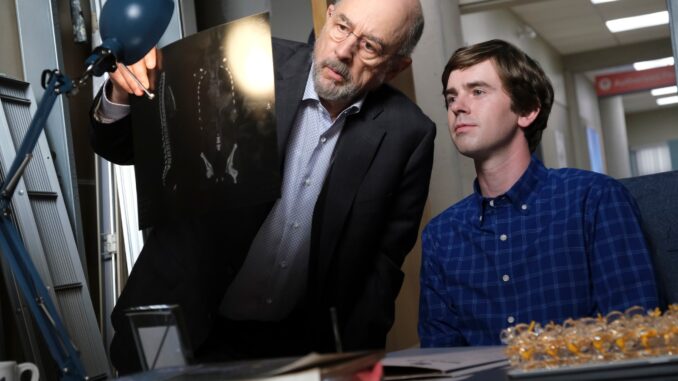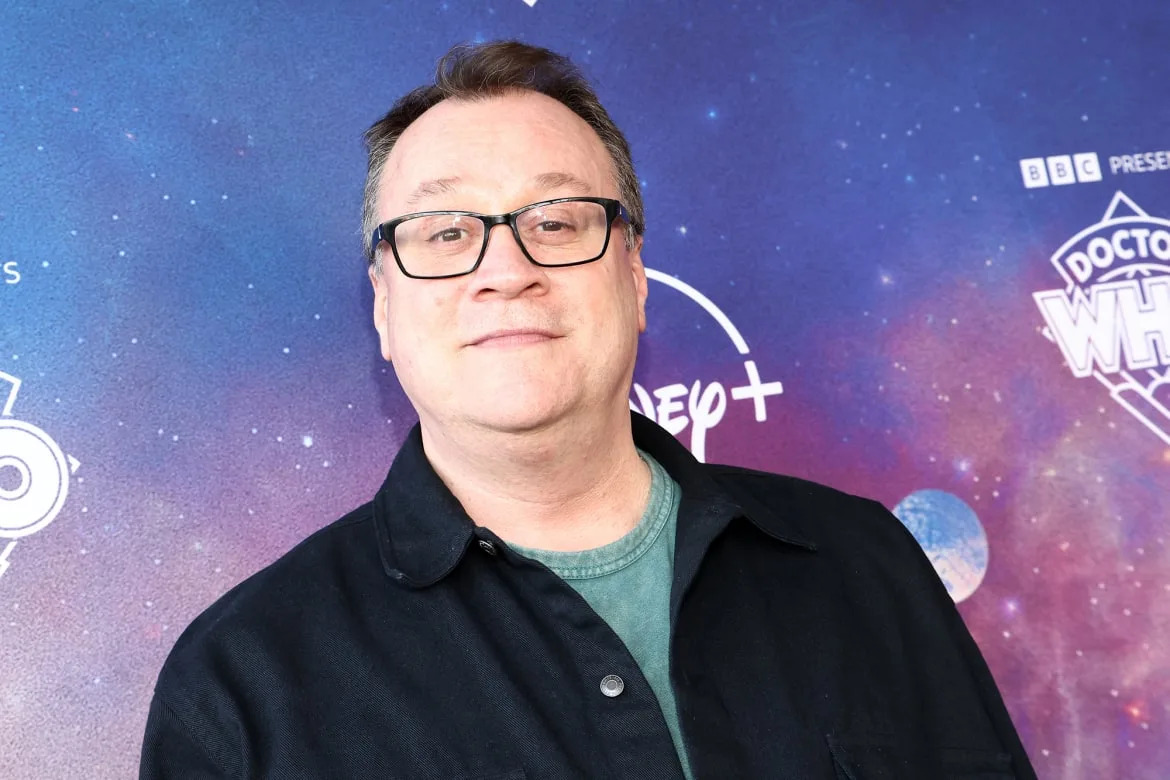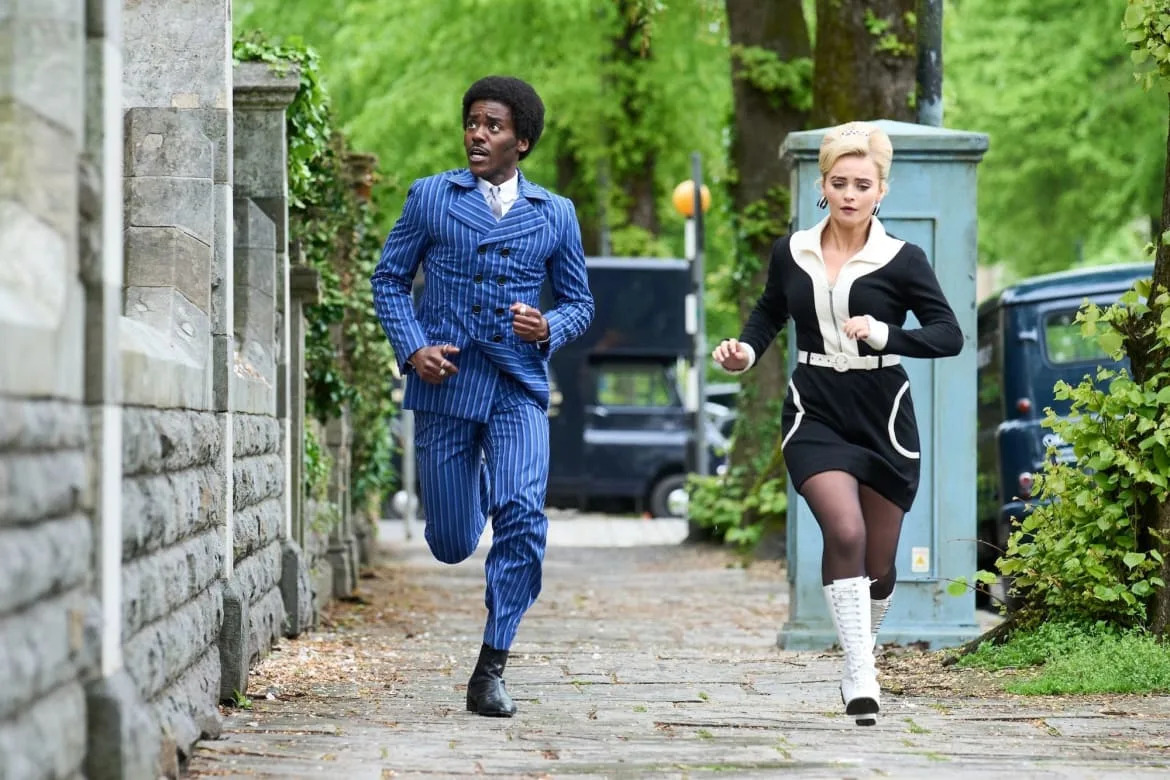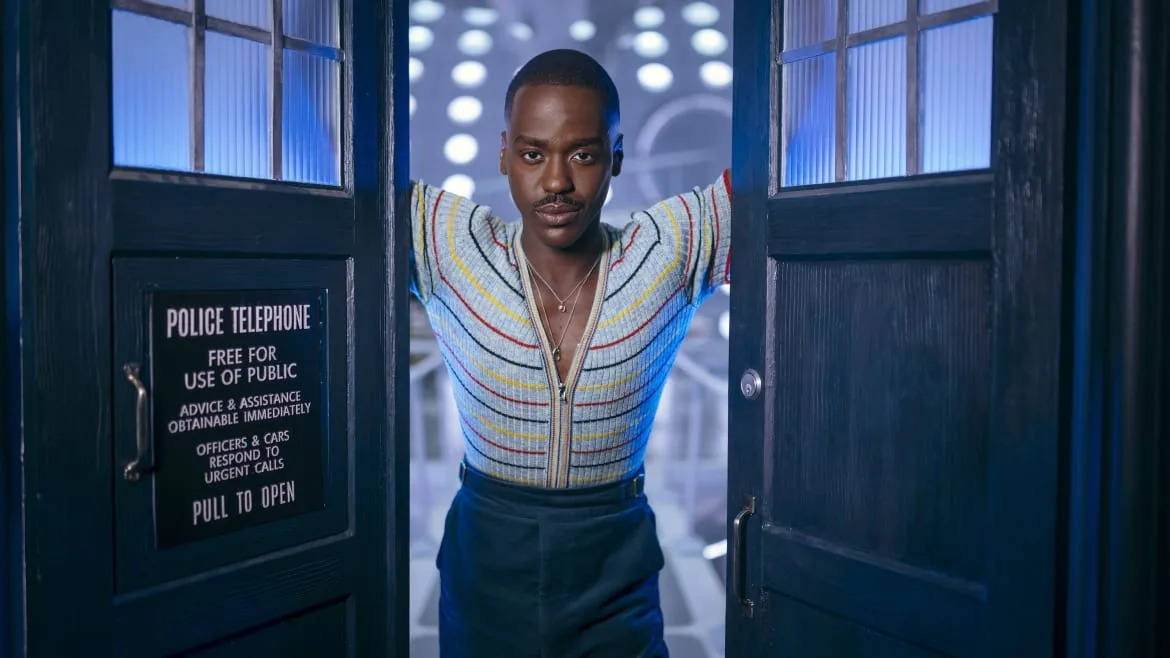
Under Doctor Who showrunner Russell T. Davies—who has returned to the show for the first time since 2010, in order to helm its new Disney+ reboot—the British sci-fi classic is perhaps the most optimistic show on television. The Doctor’s companions, all of whom are good, loving people, are thrilled to go along for the ride. The villains, humanoid, monster, and robot alike, delight viewers as they try to torment our heroes. And through it all, the good Doctor, who never wields a gun, wins.
It’s also inclusive, full of queer characters, representations of disabilities, and a multiracial cast. The new season cranks this up a notch, starting with its star, Ncuti Gatwa—the first openly queer and Black male actor to portray the classic character.
“I’ve got to say, you have to be a pretty tough executive to stand up to me [and tell me] to take that gay character out,” Davies, who is gay himself, tells The Daily Beast’s Obsessed, when asked if he faced any pushback against this decision. “Good luck with that battle.”
“But then again,” he concedes, “I am mythologizing. Sometimes I feel like I’m the hero in my own story.” Indeed, heroes and champions for positive change abound in Doctor Who, and the myth of The Doctor would not exist without the legend of Davies.
Ahead of the show’s May 10 return, we spoke with Davies about his “rules” for running Doctor Who, why he’s confident in the new direction of the show, and what he sees as the show’s legacy.
Why was inclusivity important to emphasize for the reboot?
To be absolutely honest, it feels absolutely natural to me. You’re speaking to the man who wrote Queer as Folk in 1999, so… Before that, I spent 10 years at soap operas pushing every gay character forward possible. The truth about television is that it’s mostly made by lovely left-wing liberal people who embrace this kind of storytelling.
What has the response been to the LGBTQ + inclusion in this new season?
The actual truth is I’ve had no opposition to this at all. That’s never happened, because I’ve had such support from executives, who could be equally queer themselves. With such a shifting world, now, such an open world, people are so free to express their identities. I don’t think this is a battle. I don’t even think it’s a cause. I don’t think it’s a mission. I certainly think it’s natural. I think this is the world that I live in, but it’s the world of queer mums and dads, queer families, queer politicians. The world gets better and better and better, and there’s a lot more to be done.
You’ve also made a point this season to have portrayals of disabilities.
We’re still in the playground when it comes to disability representation. That has got many, many, many obstacles to overcome, literally and physically. The marvelous thing about working with something like Ruth Madeley [a wheelchair user], who plays [recurring character] Shirley… is that when you become a friend of Ruth’s, you learn so much about the world, so much about what’s happening, so much about the problems that they face, [and] so much about the joy and exhilaration of overcoming those problems.
You can’t be too old to not learn. You’ve just got to keep your eyes and your mind open to try to make the world better.
On that note, December’s holiday specials, which preceded the new season, had some gentle lessons for viewers on how to be more open-minded to diversity. How did you go about making those teachable moments a very non-judgmental space?
Well, I hope it’s not judgmental. You need never think of [conversations on the show] as a lesson, because, actually. That’s a guaranteed way to make people turn off.
What choices did you make to get viewers on board with learning or changing their views?
One of the things I learned, when I wrote Queer as Folk, is that one of the reasons that show exploded like it did is it was hilarious. You’ve got to imagine that, in 1999, people were imagining a very solemn, very worthy, very heart-sore show, in which people were worried about Roger [played by Darrin Baker] not taking his pills. What arrived on screen was hilarious and wildly funny and that’s what took everyone by surprise.
The thing I learned from there was actually to do these things with a sense of humor—not to beat lessons over people’s heads, but actually to have a laugh. Sometimes people have objected to the lines of dialogue that I’ve written, and I sit thinking, “But that’s hilarious.” It’s really, really funny, and I get the jokes. I’m laughing, so I win.
The opposite of that is that, in other interviews ahead of the new season’s premiere, you’ve said that we’re going to be devastated by the finale and we’re gonna talk about the episode written by Steven Moffat, your fellow long time writer, “for years.” I have children. How much do I need to prepare to cradle my weeping child?



